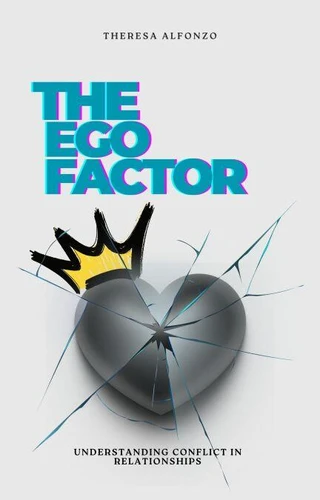The Ego Factor
Par :Formats :
Disponible dans votre compte client Decitre ou Furet du Nord dès validation de votre commande. Le format ePub est :
- Compatible avec une lecture sur My Vivlio (smartphone, tablette, ordinateur)
- Compatible avec une lecture sur liseuses Vivlio
- Pour les liseuses autres que Vivlio, vous devez utiliser le logiciel Adobe Digital Edition. Non compatible avec la lecture sur les liseuses Kindle, Remarkable et Sony
 , qui est-ce ?
, qui est-ce ?Notre partenaire de plateforme de lecture numérique où vous retrouverez l'ensemble de vos ebooks gratuitement
Pour en savoir plus sur nos ebooks, consultez notre aide en ligne ici
- FormatePub
- ISBN8230632092
- EAN9798230632092
- Date de parution05/04/2025
- Protection num.pas de protection
- Infos supplémentairesepub
- ÉditeurIndependently Published
Résumé
The importance of ego in relationships cannot be overstated. An innate ego can lead to a sense of superiority, causing individuals to dismiss others' viewpoints and escalate disagreements. Conversely, a diminished ego might result in submissiveness, where an individual feels inadequate and avoids conflict altogether. Recognizing the balance of ego is critical; it contributes to healthy self-esteem and allows for constructive communication.
In relationships, maintaining a balanced ego fosters empathy, understanding, and compromise, which are essential for resolving conflicts. In the context of disagreements, the role of ego becomes even more pronounced. When conflicts occur, egos can clash, resulting in defensive behaviors and heightened emotions. Individuals may prioritize winning the argument over ending a resolution, leading to further discord.
Understanding how ego influences these dynamics can help individuals navigate conflicts more effectively. By recognizing their own ego-driven responses and those of others, individuals can approach disagreements with a more objective mindset, focusing on problem-solving rather than personal attacks
In relationships, maintaining a balanced ego fosters empathy, understanding, and compromise, which are essential for resolving conflicts. In the context of disagreements, the role of ego becomes even more pronounced. When conflicts occur, egos can clash, resulting in defensive behaviors and heightened emotions. Individuals may prioritize winning the argument over ending a resolution, leading to further discord.
Understanding how ego influences these dynamics can help individuals navigate conflicts more effectively. By recognizing their own ego-driven responses and those of others, individuals can approach disagreements with a more objective mindset, focusing on problem-solving rather than personal attacks
The importance of ego in relationships cannot be overstated. An innate ego can lead to a sense of superiority, causing individuals to dismiss others' viewpoints and escalate disagreements. Conversely, a diminished ego might result in submissiveness, where an individual feels inadequate and avoids conflict altogether. Recognizing the balance of ego is critical; it contributes to healthy self-esteem and allows for constructive communication.
In relationships, maintaining a balanced ego fosters empathy, understanding, and compromise, which are essential for resolving conflicts. In the context of disagreements, the role of ego becomes even more pronounced. When conflicts occur, egos can clash, resulting in defensive behaviors and heightened emotions. Individuals may prioritize winning the argument over ending a resolution, leading to further discord.
Understanding how ego influences these dynamics can help individuals navigate conflicts more effectively. By recognizing their own ego-driven responses and those of others, individuals can approach disagreements with a more objective mindset, focusing on problem-solving rather than personal attacks
In relationships, maintaining a balanced ego fosters empathy, understanding, and compromise, which are essential for resolving conflicts. In the context of disagreements, the role of ego becomes even more pronounced. When conflicts occur, egos can clash, resulting in defensive behaviors and heightened emotions. Individuals may prioritize winning the argument over ending a resolution, leading to further discord.
Understanding how ego influences these dynamics can help individuals navigate conflicts more effectively. By recognizing their own ego-driven responses and those of others, individuals can approach disagreements with a more objective mindset, focusing on problem-solving rather than personal attacks















